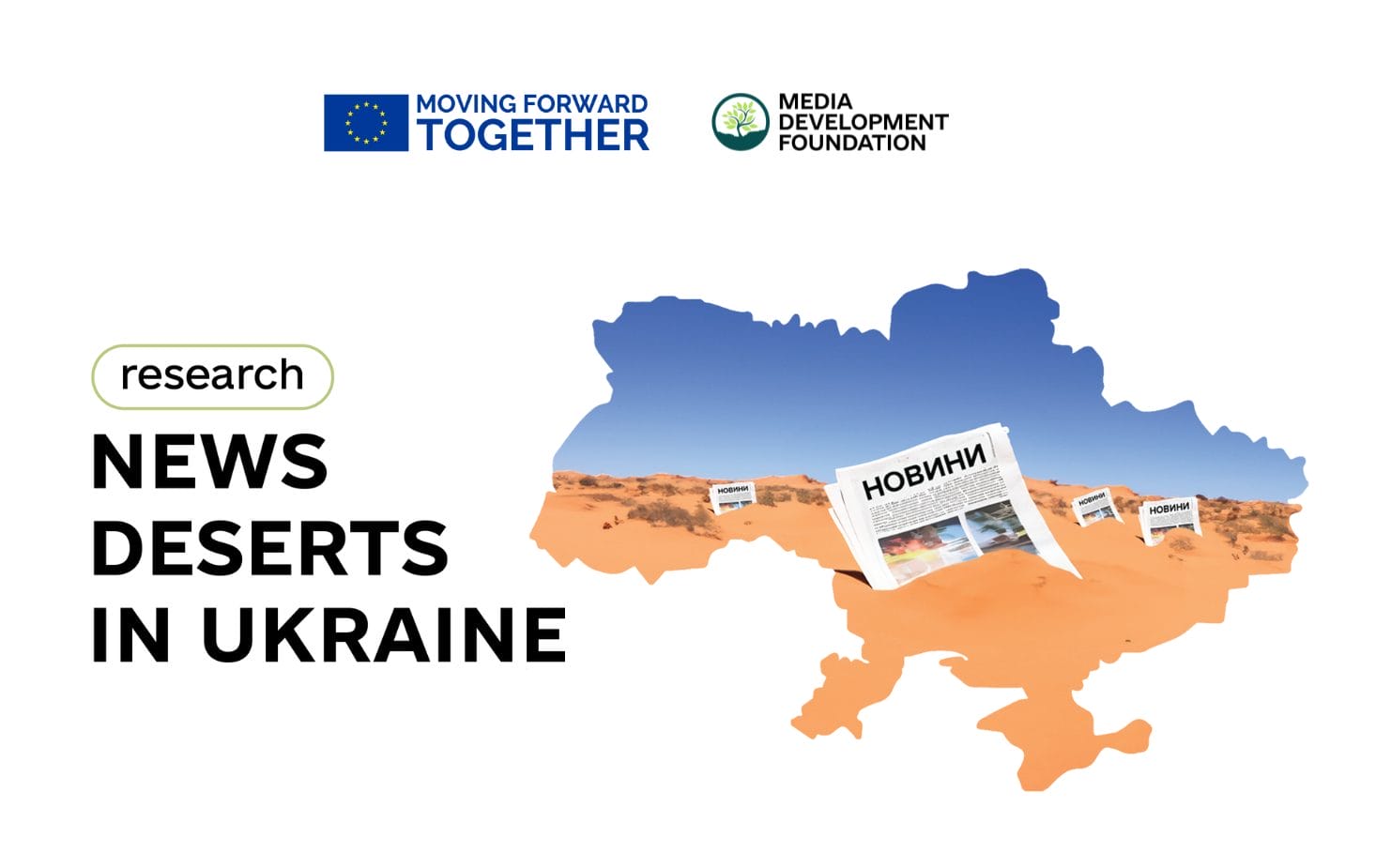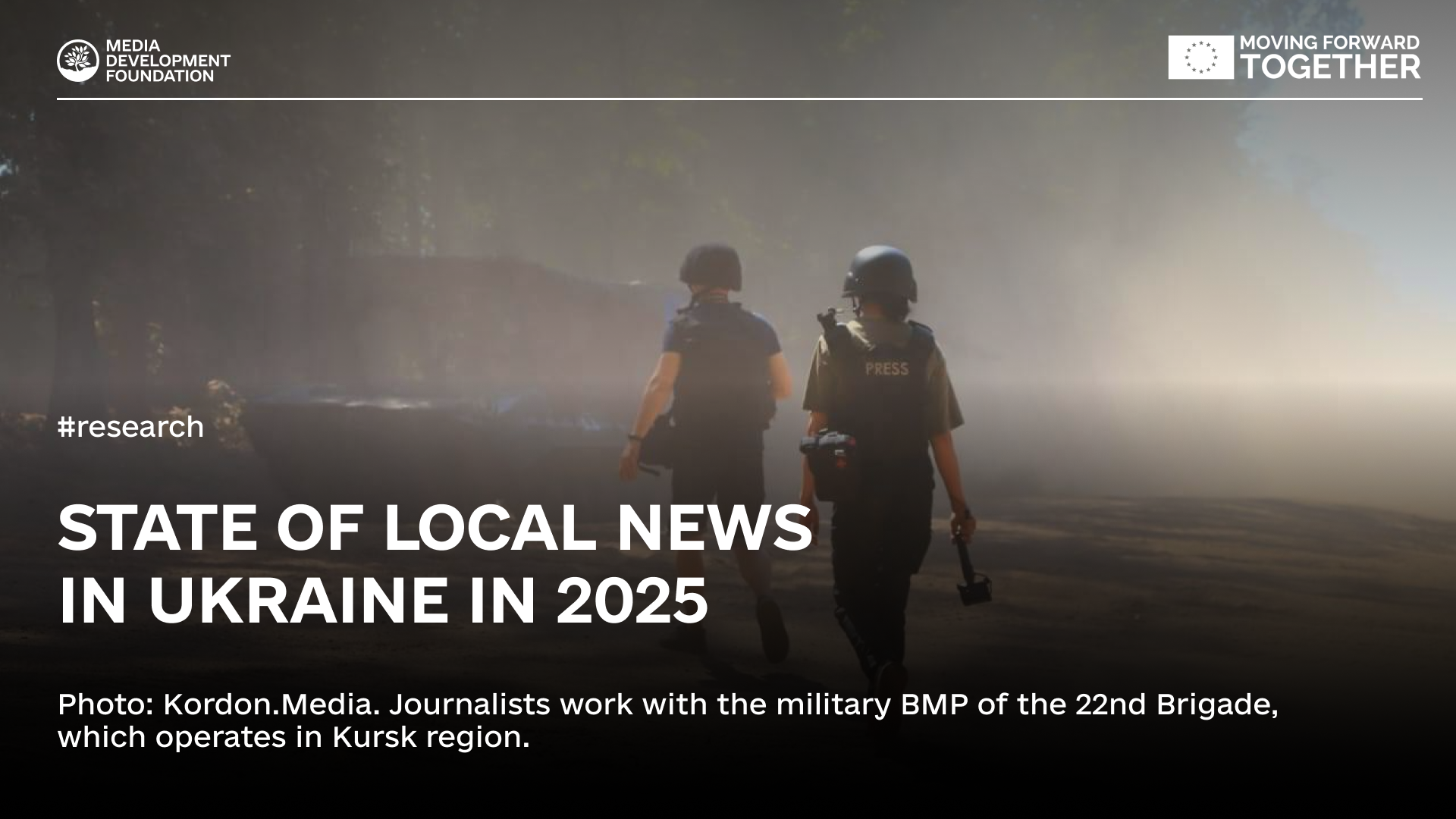MDF has started to analyze “News Deserts” in Ukraine. In the first part, 11 regions were studied: frontline, occupied, and temporarily occupied. Within these areas, researchers have identified 879 editorial offices that are currently operational. On average, there are 60-70 functioning editorial offices per region. Among them, 10 or fewer can be considered independent.
The study aimed to gather information about regions where the situation with local media could lead to the emergence of news deserts. This, in turn, could impede the country’s democratic development. Next, we outline the main conclusions of the study.
The majority of independent editorial teams were found in Kharkiv and Donetsk oblasts (14 and 13 respectively). The Kharkiv district (the area around and including the city of Kharkiv) is the “healthiest” of all the districts we studied, with 7 independent editorial teams.
Luhansk and Dnipro oblasts have the least number of independent media outlets (3 and 7 respectively).
It is clear that districts with oblast centres are always “healthy”. Each oblast centre has at least one independent editorial team – a regional branch of the public broadcasting company Suspilne and Ukrainian Radio. These meet the criteria of our methodology, being independent and covering most of the critical information needs.
The fact that many hromadas in Ukraine lack verified and independent information about themselves. Moreover, when we look at who is quoted by media covering areas that do not have their own outlets, we find that these are often official sources (city authorities, military administrations, police, prosecutors).
Nevertheless, a “news desert” does not mean that people know nothing about their district/region/city. They get plenty of information from their friends’ and acquaintances’ social media. In Ukraine, local Telegram channels provide this information.
This research was created and maintained with the financial support of the European Union. Its contents are the sole responsibility of Media Development Foundation and do not necessarily reflect the views of the European Union.







